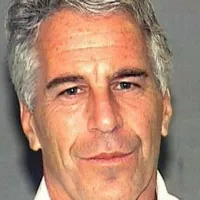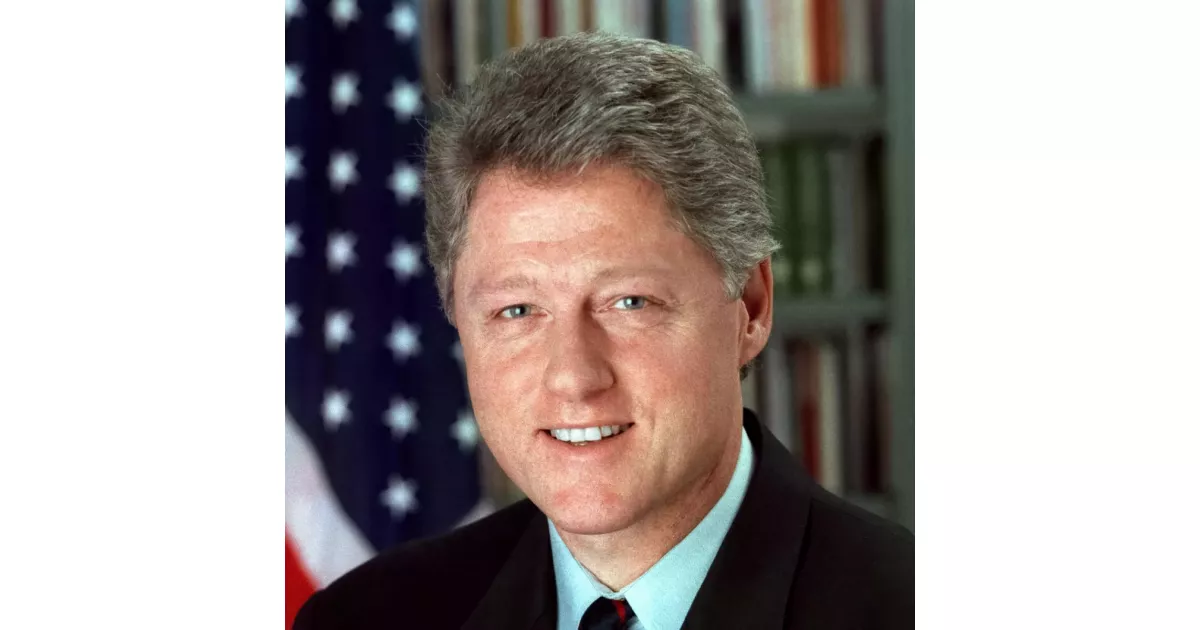Resilience and perseverance in the journey of Bill Clinton. A timeline of obstacles and growth.
Bill Clinton, the 42nd U.S. President (1993-2001), served as Arkansas's Attorney General (1977-1979) and Governor (1979-1981, 1983-1992). A Democrat, his "Third Way" centrism, dubbed Clintonism, shaped his presidency. Key achievements include economic prosperity, NAFTA, and welfare reform. He faced impeachment proceedings related to his affair with Monica Lewinsky, but was acquitted. His presidency is viewed as a period of relative peace and economic growth, though marked by political polarization and scandal.
1972: Anti-Republican mood
The Watergate scandal bolstered Bill Clinton's campaign for the House of Representatives in 1972
1974: Ran for House of Representatives
In 1974, Bill Clinton ran for the House of Representatives in Arkansas's 3rd district, and was narrowly defeated by John Paul Hammerschmidt.
1980: Unpopular motor vehicle tax and Cuban refugees
In 1980, Bill Clinton's term as Governor of Arkansas was marked by an unpopular motor vehicle tax and public anger over the escape of Cuban refugees detained in Fort Chaffee. Monroe Schwarzlose polled 31 percent of the vote against Clinton in the Democratic gubernatorial primary. These events contributed to his defeat in the general election that year.
1992: Draft Controversy During Campaign
During the 1992 campaign, Bill Clinton's draft record and attempts to avoid service in Vietnam were criticized. His campaign manager successfully argued for the release of Clinton's letter declining ROTC.
1992: Draft Controversy
During the 1992 presidential campaign, Colonel Eugene Holmes stated that he suspected Bill Clinton attempted to manipulate the situation to avoid the draft.
April 19, 1993: FBI raid on Branch Davidian community
On April 19, 1993, Attorney General Janet Reno authorized the FBI to use armored vehicles and tear gas on the Branch Davidian community near Waco, Texas. The operation led to a fire that killed 75 residents, including 24 children, in an attempt to end a 51-day siege.
May 19, 1993: Firing of White House Travel Office Employees
On May 19, 1993, Clinton fired seven employees of the White House Travel Office, leading to the White House travel office controversy.
September 22, 1993: Clinton's health care reform speech to Congress
On September 22, 1993, President Clinton delivered a major speech to Congress outlining a health care reform plan aimed at achieving universal coverage. The plan, led by Hillary Clinton, faced strong opposition and ultimately failed despite a Democratic majority in Congress.
November 1993: David Hale Alleges Clinton Pressured Him to Provide Illegal Loan
In November 1993, David Hale alleged that while Bill Clinton was Governor of Arkansas, Clinton pressured Hale to provide an illegal $300,000 loan to Susan McDougal, the Clintons' partner in the Whitewater land deal, leading to a U.S. Securities and Exchange Commission investigation.
1993: Battle of Mogadishu
In 1993, during the Battle of Mogadishu in Somalia, two U.S. helicopters were shot down, resulting in the deaths of 18 American soldiers and prompting a drop in support for American intervention.
April 1994: Genocide in Rwanda
In April 1994, genocide broke out in Rwanda, and Clinton chose not to intervene, fearing a reprisal of the events in Somalia the previous year. Clinton later called this failure one of his main foreign policy failings.
1994: Lopsided defeat of national Democrats
The lopsided defeat of national Democrats in the 1994 elections partially led to Bill Clinton's chances of being re-elected initially seeming slim.
1995: Approval rating got as low as 40 percent
In early 1995, Bill Clinton's approval rating got as low as 40 percent, which led to several high-profile Democrats suggesting he drop out of the race. However, in mid-1995, public opinion of Clinton up-ticked and early 1996 polls found he had a lead of up to 20 points over his likely Republican opponent Bob Dole.
June 1996: White House FBI Files Controversy Arises
In June 1996, the White House FBI files controversy arose concerning improper access by the White House to FBI security-clearance documents.
November 1996: Assassination attempt in the Philippines
In November 1996, President Clinton narrowly escaped a possible assassination attempt in the Philippines, involving a bridge bomb planted by al-Qaeda and masterminded by Osama bin Laden. The attempt remained top secret during Clinton's presidency.
1996: Chinese Contributions to Clinton's Reelection Campaign
In 1996, it was discovered that several Chinese foreigners made contributions to Bill Clinton's reelection campaign and the Democratic National Committee with the backing of the People's Republic of China, violating United States law.
1996: State Department Warning about bin Laden
In 1996, the State Department issued a warning about bin Laden, prompting Clinton to order military missions to capture or kill him, all of which were unsuccessful.
February 1997: Donors Staying at the White House
In February 1997, it was discovered that 938 people had stayed at the White House and that 821 of them had made donations to the Democratic Party and got the opportunity to stay in the Lincoln bedroom as a result of the donations.
December 1998: House Begins Impeachment Hearings
In December 1998, the House of Representatives began impeachment hearings against Bill Clinton after the Starr Report was submitted, alleging acts that might constitute grounds for impeachment.
December 19, 1998: Clinton Impeached by the House of Representatives
On December 19, 1998, Bill Clinton was impeached by the House of Representatives for perjury and obstruction of justice related to his relationship with Monica Lewinsky.
January 1999: Impeachment Trial in the Senate
In January 1999, Bill Clinton's impeachment trial began in the Senate.
February 12, 1999: Senate Acquits Clinton of Impeachment Charges
On February 12, 1999, the Senate acquitted Bill Clinton of both perjury and obstruction of justice charges, failing to reach the two-thirds majority required for conviction and removal from office.
March 2000: Independent Counsel Finds No Crime in FBI Files Controversy
In March 2000, Independent Counsel Robert Ray determined there was no credible evidence of any crime related to the White House FBI files controversy.
December 2000: Attempt to End the Israeli-Palestinian conflict
In December 2000, Clinton attempted to end the Israeli-Palestinian conflict at Bolling Air Force Base, in which the president offered the Clinton Parameters
January 19, 2001: Clinton's Law License Suspended
On January 19, 2001, Bill Clinton's law license was suspended for five years after he acknowledged conduct prejudicial to the administration of justice in the Jones case.
January 20, 2001: Clinton Issues Pardons on Last Day in Office
On January 20, 2001, Bill Clinton issued 141 pardons and 36 commutations on his last day in office, leading to controversy surrounding Marc Rich and allegations of payments for influencing pardon decisions.
Mentioned in this timeline

Barack Obama the th U S President - was the...

Martin Luther King Jr was a pivotal leader in the...

Hillary Diane Rodham Clinton is a prominent American politician lawyer...

John F Kennedy JFK was the th U S President...

George W Bush the rd U S President - is...

Jeffrey Epstein was an American financier and convicted sex offender...
Trending

51 minutes ago Storm Causes Power Outages Across Central Coast and SLO County, Bringing Down Trees

2 hours ago Iva Jovic triumphs over Rakhimova in Dubai, reveals Pegula observation.

2 hours ago Andreeva vs. Cristian: WTA Dubai 2026 Prediction, Odds, and Match Preview.

2 hours ago Mirra Andreeva embraces attention, aims Dubai title defense, draws inspiration from LeBron James.

3 hours ago Severe Thunderstorm Warning Issued for Central California; Funnel Clouds Possible, Gusty Showers Expected

3 hours ago Iva Jovic Observed Jessica Pegula; Jovic Wins in Dubai First Round.
Popular

Jesse Jackson is an American civil rights activist politician and...
Randall Adam Fine is an American politician a Republican who...

Pam Bondi is an American attorney lobbyist and politician currently...

Barack Obama the th U S President - was the...

Kid Rock born Robert James Ritchie is an American musician...

XXXTentacion born Jahseh Dwayne Ricardo Onfroy was a controversial yet...
